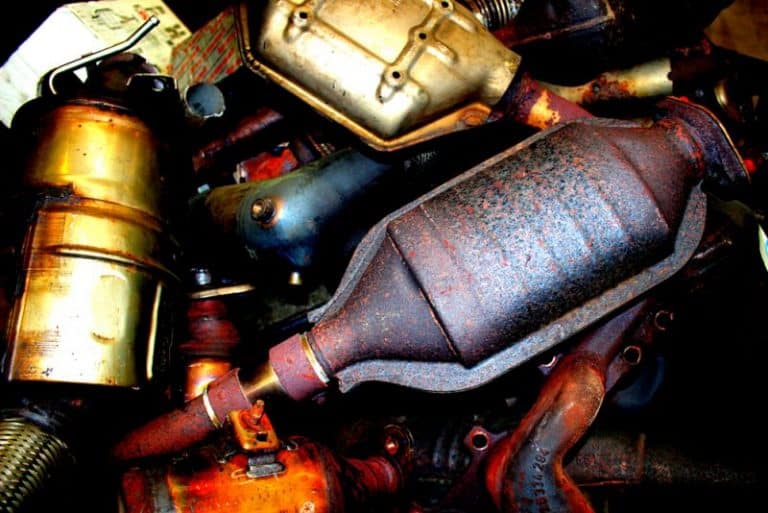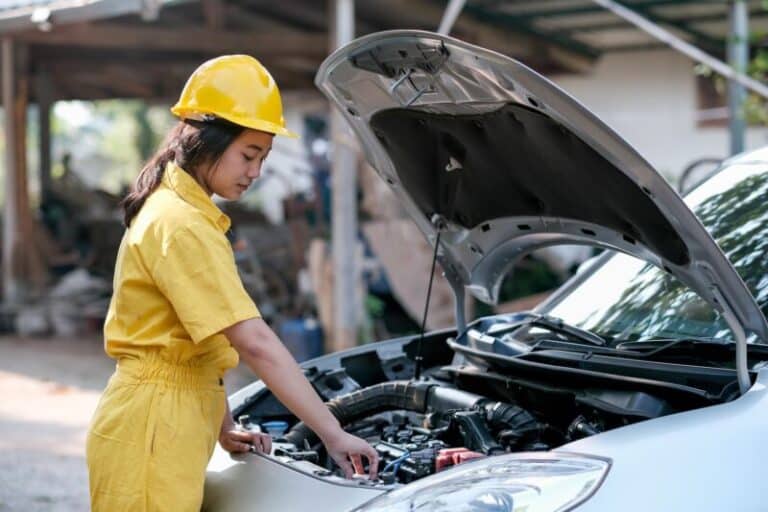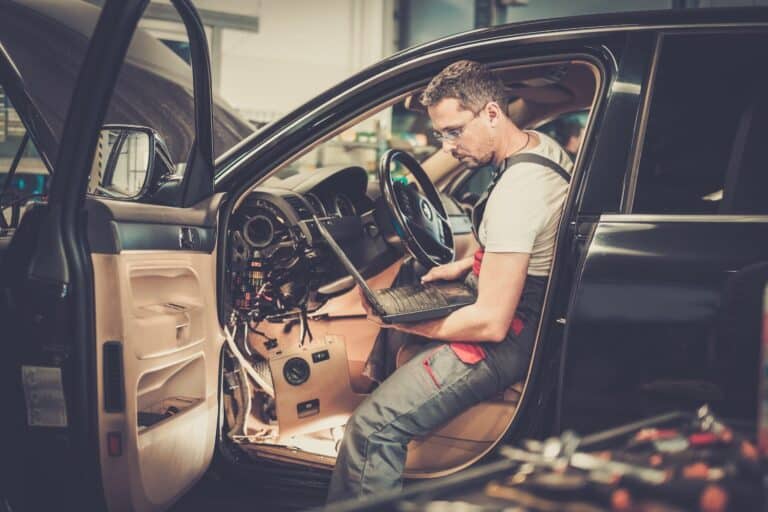Understanding Why Your Car Jerks When Slowing Down
Experiencing a car jerking when slowing down can be both annoying and potentially dangerous. Not only does it make for an uncomfortable driving experience, but it could also indicate underlying issues with your vehicle that need addressing.
In this article, we’ll explore the common causes of car jerking while decelerating and how to diagnose and fix these problems.

Potential Causes of Car Jerking When Slowing Down
There are several possible reasons why your car may jerk when you slow down. Some of the most common culprits include:
- Transmission problems
- Fuel injector issues
- MAF sensor malfunction
- Ignition coil failure
- Vacuum leaks or other engine complications
Each of these issues requires a different approach to diagnosis and repair, so identifying the root cause of the problem is crucial for getting your vehicle back in smooth running condition.
Do you want to upgrade your vehicle for exceptional performance? Click here for more information: CTS To CTS-V Conversion (Beginners Guide)
Transmission Problems
A frequent reason for car jerking when decelerating is transmission-related. There are various components within the transmission system that may cause this issue:
- Low or dirty transmission fluid
- Worn or damaged torque converter
- Malfunctioning shift solenoids
- Worn or damaged clutch (in manual transmissions)
If you suspect that your vehicle’s transmission is causing the jerkiness, take it to a qualified mechanic for proper diagnosis and repair. They will be able to inspect the system, identify the problem, and recommend the appropriate fix.
Fuel Injector Issues
Another source of car jerking when slowing down may be the fuel injectors. These components deliver the precise amount of fuel to the engine for optimal performance. If they become dirty or clogged, they may not provide the correct fuel mixture, leading to a jerky and uneven ride.
To address this issue, try using a quality fuel injector cleaner that can help remove deposits and improve overall efficiency. If the problem persists, consult a mechanic who can professionally clean or replace the fuel injectors if necessary.
MAF Sensor Malfunction
The Mass Air Flow (MAF) sensor measures the amount of air entering the engine and adjusts the fuel delivery accordingly. If this sensor becomes faulty or dirty, it may send incorrect data to the engine control module, leading to poor fuel efficiency and jerking motions during deceleration.
Cleaning or replacing the MAF sensor is usually a straightforward process that can be carried out by most vehicle owners with basic mechanical knowledge. However, if you’re unsure about tackling the job yourself, seek assistance from a professional mechanic.
How Far Away Does a Key Fob Work? Check our tips: How Far Away Does a Key Fob Work?
Ignition Coil Failure
A failing ignition coil could also cause your car to jerk while slowing down. Ignition coils generate the high voltage required to create a spark in the combustion chamber. When these coils begin to fail, they may not produce enough energy to ignite the fuel, resulting in a misfire and subsequent jerking motion.
If you suspect a faulty ignition coil, have a mechanic inspect and test the component. They will be able to determine whether a replacement is necessary or if another issue is causing the problem.
Engine Complications and Vacuum Leaks
Vacuum leaks and other engine complications can also lead to a jerky driving experience. Vacuum leaks occur when the engine’s vacuum system, which helps regulate various functions, has a breach that allows air to escape. This can affect the air-fuel mixture, leading to poor performance and jerking motions.
Similarly, issues with other engine components, such as a faulty throttle position sensor or a damaged oxygen sensor, may cause related problems. If you suspect an engine issue is causing your car to jerk when slowing down, consult a mechanic who can diagnose and repair the problem.
Maintaining Your Vehicle for Smooth Deceleration
Proper vehicle maintenance is essential for preventing jerking motions during deceleration.
Ensure that you routinely check and replace fluids, such as transmission fluid and engine oil, as required by your vehicle’s manufacturer guidelines. Additionally, use quality fuel injector cleaners and have your ignition system inspected regularly to prevent potential failures.
If you experience persistent jerking when slowing down, do not ignore the problem. Seek professional assistance to diagnose and resolve the issue before it leads to more significant and costly repairs.






